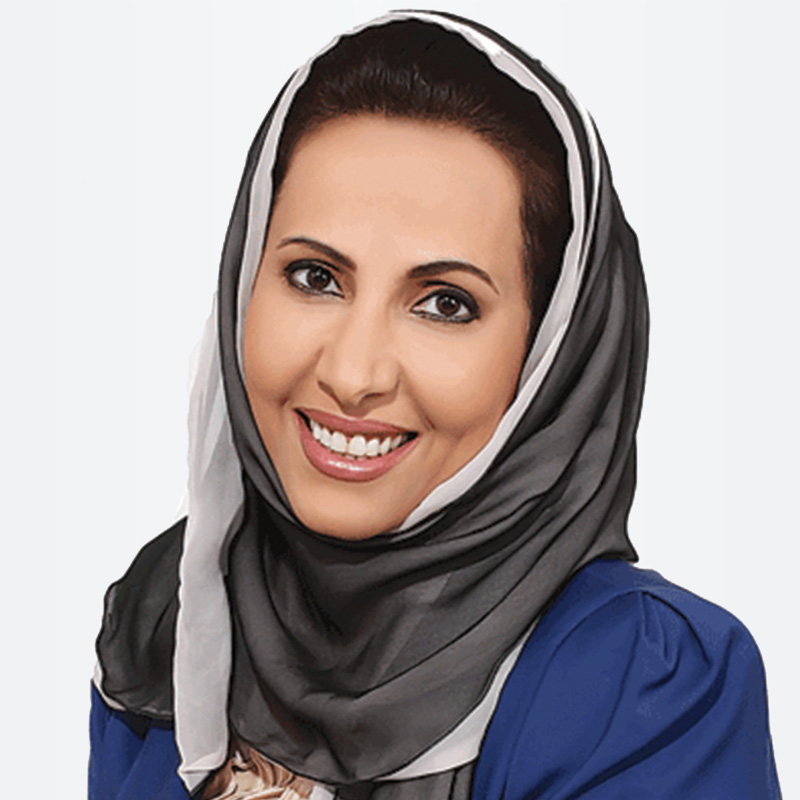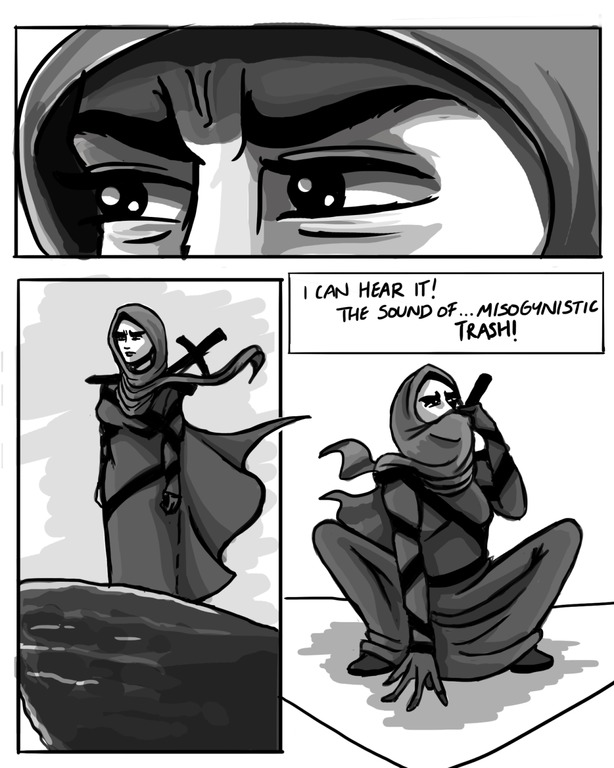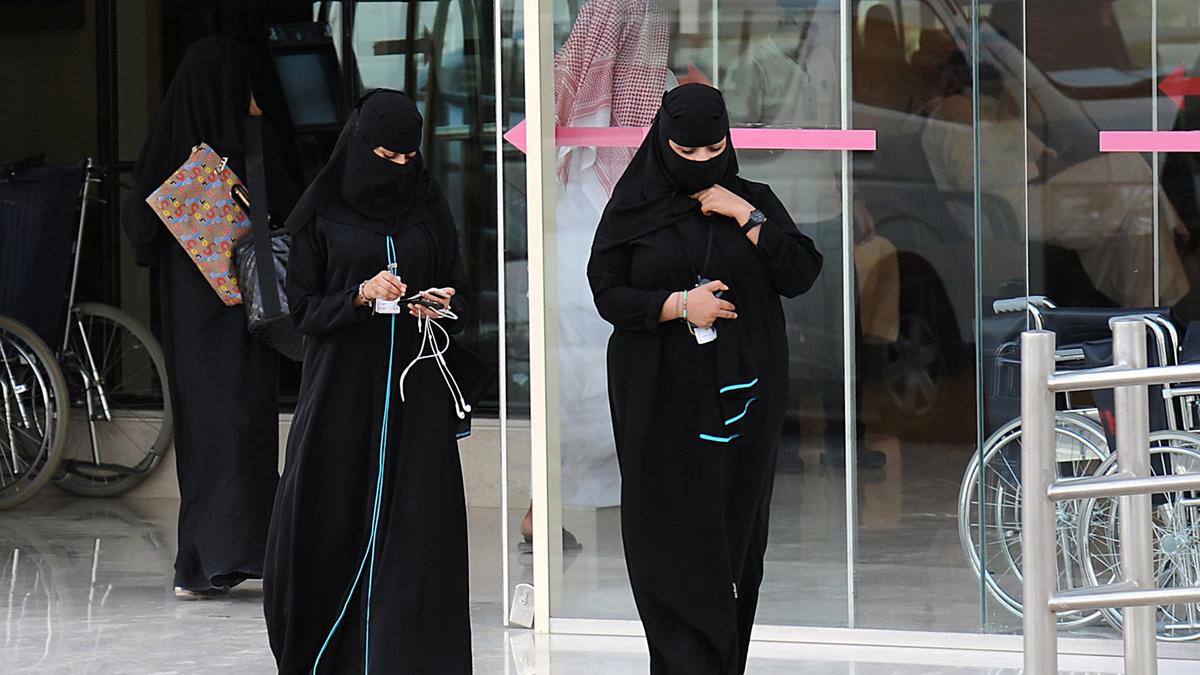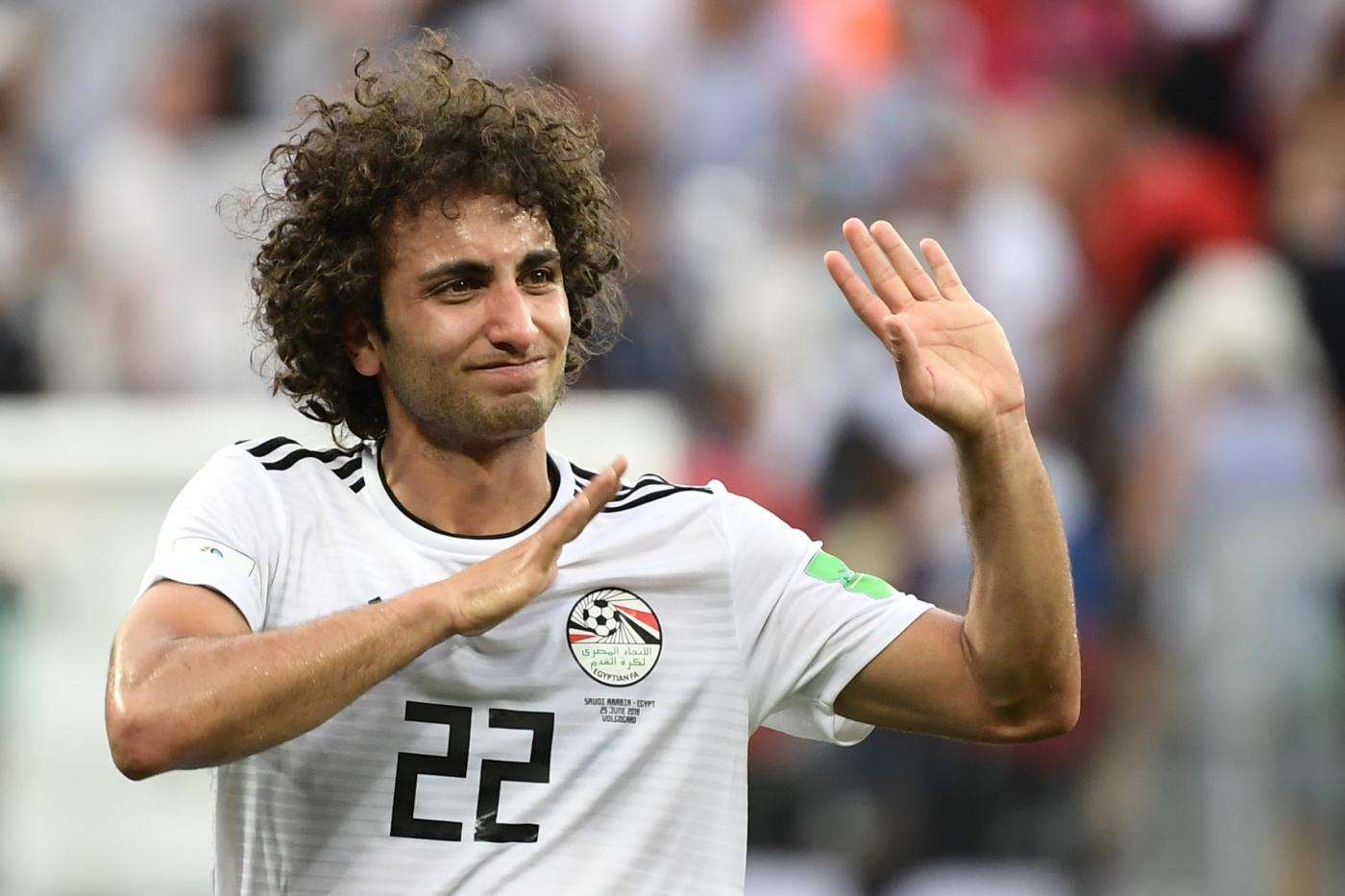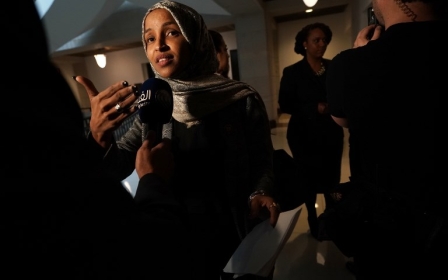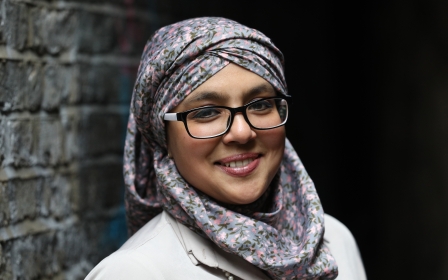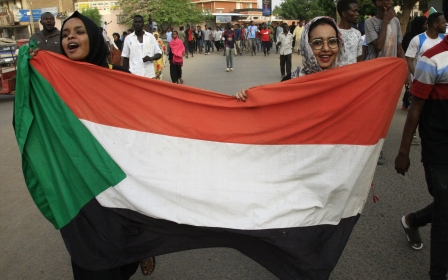What does it take to be an Arab feminist in 2019?
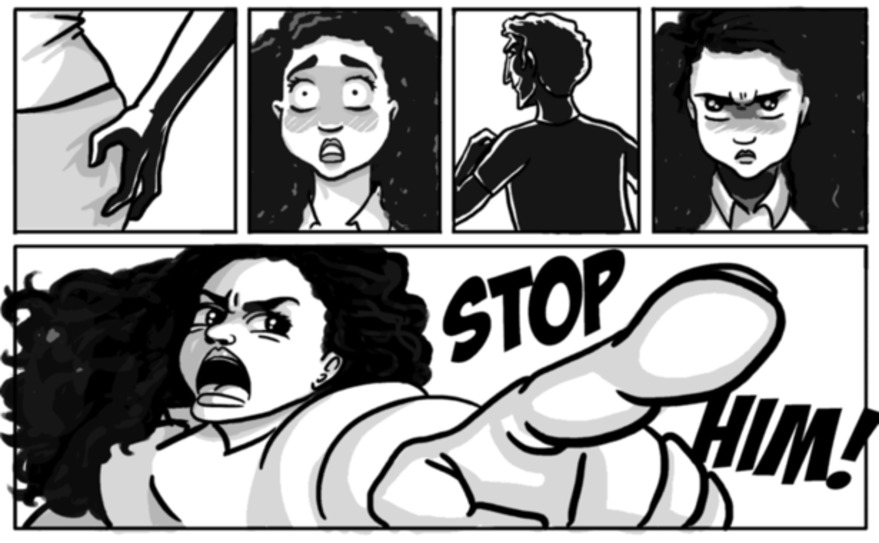
What does it mean to be an Arab feminist today? In the Western media the words are often treated as an oxymoron. The stereotype perpetuated of Arab women is that of the victim, often oppressed and generally submissive.
What do Arab women need to do to change this narrative and define the term for themselves? And how does the legacy of previous generations of feminists from the region intersect with globalised movements like #MeToo?
These questions and others were posed at the fifth Shubbak Literary Festival, part of a wider London-based festival of contemporary Arab culture, which took place at the British Library last weekend.
On a panel discussing these ideas, chaired by journalist and broadcaster Bidisha, were two very different artists from the region, representing two different generations: 25-year-old graphic novelist and award-winning Egyptian comic artist Deena Mohamed, best known as the creator of hijabi-wearing superhero Qahera, and veteran Saudi novelist, journalist and broadcaster Badriah al-Beshr, whose latest novel Hend and the Soldiers focuses on a young Saudi Arabian woman and the challenges she faces in a conservative society.
New MEE newsletter: Jerusalem Dispatch
Sign up to get the latest insights and analysis on Israel-Palestine, alongside Turkey Unpacked and other MEE newsletters
The F-Word
When questioned about the relevance of the F-Word, both artists agreed that feminism, in all of its constructs, was relevant for Middle Eastern women, although Mohamed said "it might mean something very different for people in different countries".
Al-Beshr also agreed that the plurality of the term was problematic. Speaking through an interpreter, she said: "There are different versions of it [feminism] and these can vary depending on the political and social circumstances of a place.
I created this character that fights for things, which was very much part of the revolution
- Deena Mohamed, comic novelist
"You have to think locally and immediately – what are the most pressing issues [for women] in their immediate environment? Globalisation has enabled us to see what women are doing all over the world, so how can we adopt these versions and make them relevant to the circumstances we live in? It's not just about replicating these models, we need unique versions of successful [Middle Eastern] women."
In terms of the impact of the #MeToo movement, Mohamed argued that it "redefined sexual harassment, so that it simply couldn’t be dismissed as flirtation". In Egypt, women had been campaigning for a long time against women being sexually harassed on the street through organisations such as the Egyptian Initiative for Personal Rights and HarassMap. "MeToo lent the campaign a sense of legitimacy," which was long overdue, said Mohamed.
For both women, gender politics is inextricable from their creative work. Mohamed confessed to having a rather sceptical view of feminism pre-2011 revolution, when the projects championed by Suzanne Mubarak's National Council for Women appropriated women's activism, linking it to the state.
It was only during the revolution that she developed a grassroots awareness of feminism as inseparable from political activism. "We all had this desire for change, and of wanting change and trying to accomplish it, that I created this character [Qahera] that fights for things, which was very much part of the revolution," she said.
"It was a time of great upheaval and there was this feeling of hope. You could express yourself much more."
Further inspiration came from a "misogynistic article written by a Muslim man" where the author fulminated on the qualities for the perfect wife. Apparently the ability to be waif-like and wash dishes well were given high priority, incensing Mohamed, who responded to the article with a visibly Muslim, Egyptian superhero who tackles social issues, such as Islamophobia and misogyny.
Humour is inherent in Mohamed’s work. In a series of comic panels, Qahera is berated by her rotund, moustachioed neighbour for being unworthy of her superhero moniker on account of the dogs and random people she rescues. It is only when she rescues someone who looks just like him that he pronounces her worthy of the title.
However, Mohamed is wary of what the chair, Bidisha, terms "the burden of representation". She didn't explicitly set out to write about feminist issues, rather tell a story from her perspective which embraces feminist views.
Cynicism and censorship
Similarly, al-Beshr's impressive oeuvre – 11 books, including four novels as well as a number of short story collections – features subjects as diverse as domestic abuse, arranged marriage and romances between women told from a female point of view, illuminating a side of Saudi society few rarely encounter.
"From a young age, I felt that I would like to live in a better environment for women, so I started reading and writing, and expressing my ideas as a first step in that journey of change," she said.
Al-Beshr is adamant that women's rights are advancing in Saudi Arabia, that "dignity is not an innovation," and that the gains women have acquired under "the brilliant leadership" of Crown Prince Mohammad bin Salman, in terms of driving and adjustments to the male guardianship system illustrate that change is really happening.
These innovations, which are also evident in the fields of education and work, she insisted, took a large amount of activism over a long period of time and are not simply superficial.
When questioned by an audience member on the arrests of 11 women activists in Saudi Arabia (the detention of campaigners such as Aziza al-Yousef and blogger Eman al-Nafjan have been described by human rights campaigners as Saudi's Year of Shame), al-Beshr cited the Western media's obsession with "exciting" subjects.
She explained: "There are 11 women in prison but nine million women on the ground in Saudi Arabia, in real life. These freedoms we have now in Saudi Arabia are not just political cards being played. These important requests took a long time to achieve."
This led neatly on to the issue of censorship, of which Mohamed quipped: "The thing about censorship is that you cannot talk about how you are being censored." Although both artists admitted to a degree of self-censorship in their work.
For Mohamed, the hope that embodied the revolution has quickly dissipated into cynicism. "During the revolution, there was a solid grasp of equality and equal rights, but now the NGOs have left, and you can't separate that political activism from a feminist version. So now we have a very sanitised version of feminism," she said.
She mentions the case of Egyptian footballer (Amr Warda), who has been accused by multiple women of sexual harassment. He was kicked off the national squad on 24 June, but, after apologising to his family and teammates (but not to his alleged victims) and prominent celebrities coming to his defence, he was back on the national squad within hours and allowed to take part in the Africa Cup of Nations, which Egypt is hosting this month.
Unsurprisingly, the "team of harassers" hashtag in Arabic was trending on Twitter in Egypt over the weekend.
Wish fulfilment
Mohamed's latest project, the award-winning debut graphic novel Shubeik Lubeik, is the first of a trilogy of novels set in a fantastical Cairo where wishes are literally for sale on roadside kiosks: "the more expensive they are, the more powerful they are to fulfil your dreams". She explained that the concept is about "choice, how governments interfere with your most intimate desires".
Does she feel the feminist dreams she held as a 16-year-old during the revolution have been fulfilled?
"You have to be optimistic, we have baby steps, we do make progress every day. You can't have women's rights in a vacuum because the end goal is human rights. We know what we are missing out on – we can ask for our rights, because we know that we are not getting them."
For both these women, the F in feminism stands very much for freedom of choice.
"I think the next step for women is to identify who they are for themselves," said al-Beshr. "We have achieved a lot in terms of women's rights, but we still have lots more to achieve."
Billed as a window on contemporary Arab culture, Shubbak Arts Festival takes place 28 June -14 July at venues across London, including the British Library and the British Museum www.shubbak.co.uk
The first part of Deena Mohamed's Shubeik Lubeik trilogy was published by Dar al-Mahrousa in 2018. The translated collected volume of all three books is set to be released in English by Pantheon Books (US) and Granta (UK) in 2021.
Middle East Eye delivers independent and unrivalled coverage and analysis of the Middle East, North Africa and beyond. To learn more about republishing this content and the associated fees, please fill out this form. More about MEE can be found here.


